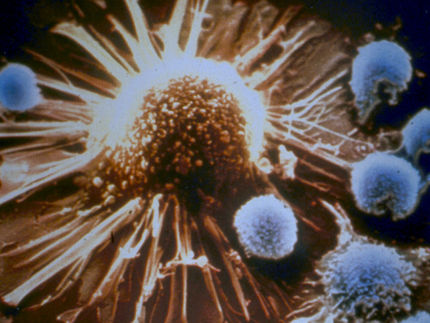Merck Serono and MorphoSys Enter Strategic Immuno-Oncology Collaboration
Merck and MorphoSys AG announced that they have signed an agreement to discover and develop therapeutic antibodies against undisclosed immune checkpoints. Under the terms of the agreement, MorphoSys and Merck Serono will join forces to develop therapies that modulate the immune system’s natural ability to fight tumors. MorphoSys will apply its proprietary Ylanthia® antibody phage library and technology platform to identify antibodies against the targets of interest. Merck Serono with its portfolio and capabilities in the field of immuno-oncology and clinical development will be fully responsible for execution of development from Phase I onwards.
With this partnership, Merck Serono, is committed to strengthen its existing portfolio of cancer immunotherapies that work as monotherapies or in combination with other therapeutic modalities. The company’s immuno-oncology pipeline assets currently investigated in clinical trials span from Phase l to Phase III for the treatment of different cancer types, including tecemotide, a MUC1 antigen-specific cancer immunotherapy, the two immunocytokines NHS-IL2 (MSB0010445) and NHS-IL12 (MSB0010360), and the monoclonal antibody anti-PD-L1 (MSB0010718C).
Under the terms of the co-development and license agreement, MorphoSys will co-fund research & development costs with the option to opt-out at predefined stages. MorphoSys will be eligible to receive development and commercial milestone payments, and in addition, tiered royalties on product sales that will reflect the extent of MorphoSys co-funding. Merck Serono will have sole responsibility for commercializing of any resulting products. Further financial details are not being disclosed.
Topics
Organizations
Other news from the department business & finance

Get the life science industry in your inbox
By submitting this form you agree that LUMITOS AG will send you the newsletter(s) selected above by email. Your data will not be passed on to third parties. Your data will be stored and processed in accordance with our data protection regulations. LUMITOS may contact you by email for the purpose of advertising or market and opinion surveys. You can revoke your consent at any time without giving reasons to LUMITOS AG, Ernst-Augustin-Str. 2, 12489 Berlin, Germany or by e-mail at revoke@lumitos.com with effect for the future. In addition, each email contains a link to unsubscribe from the corresponding newsletter.
Most read news
More news from our other portals
See the theme worlds for related content
Topic world Antibodies
Antibodies are specialized molecules of our immune system that can specifically recognize and neutralize pathogens or foreign substances. Antibody research in biotech and pharma has recognized this natural defense potential and is working intensively to make it therapeutically useful. From monoclonal antibodies used against cancer or autoimmune diseases to antibody-drug conjugates that specifically transport drugs to disease cells - the possibilities are enormous

Topic world Antibodies
Antibodies are specialized molecules of our immune system that can specifically recognize and neutralize pathogens or foreign substances. Antibody research in biotech and pharma has recognized this natural defense potential and is working intensively to make it therapeutically useful. From monoclonal antibodies used against cancer or autoimmune diseases to antibody-drug conjugates that specifically transport drugs to disease cells - the possibilities are enormous






















































